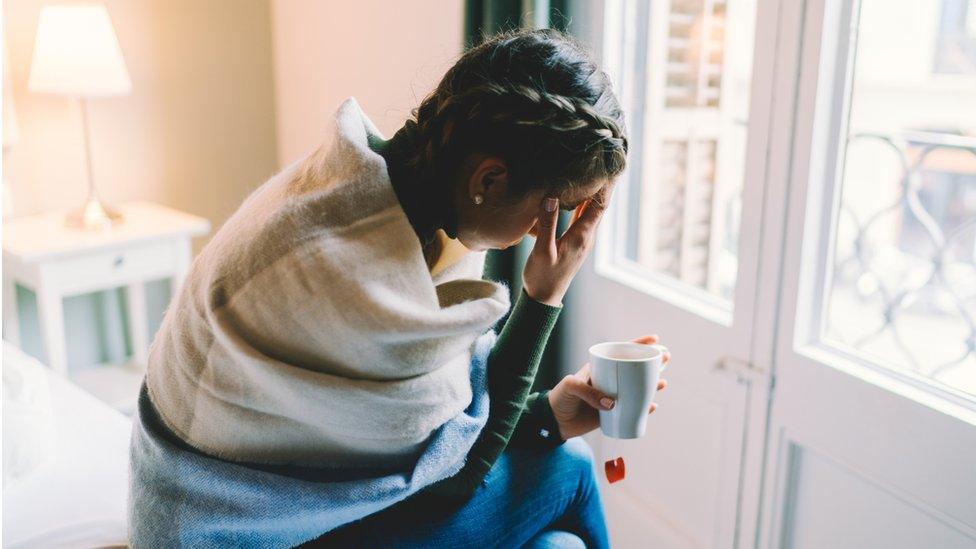Newcastle hotels used as lockdown refugee housing criticised
- Published
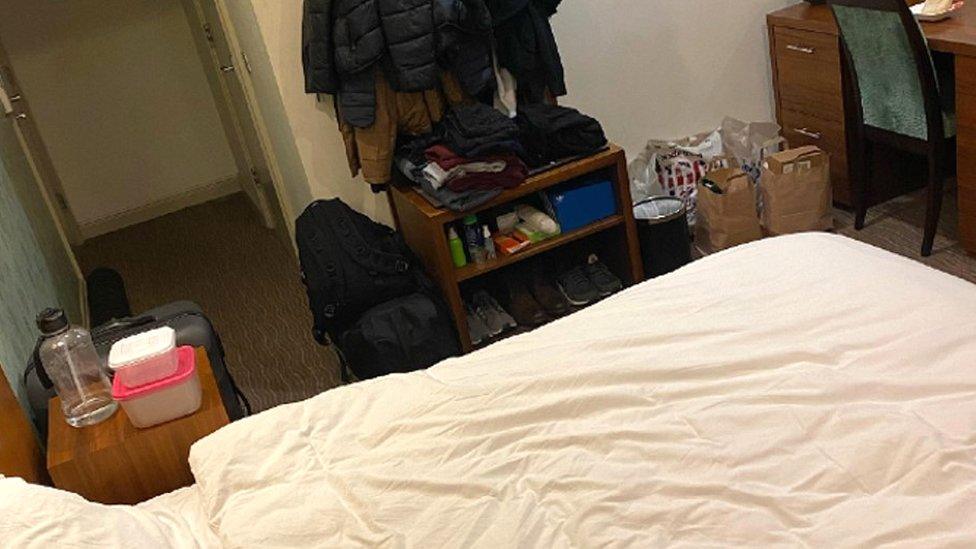
Some refugees and asylum seekers have spent up to six months living in hotel rooms in Newcastle
Refugees living in Newcastle hotels during lockdown were left "vulnerable" and without fresh food or basic Covid-19 protections, a report has found.
A lack of appropriate medical facilities and hotel security issues were also highlighted in the council review of living conditions.
Some asylum seekers had spent up to six months living in hotel rooms, it found.
The council report also looked at the effect housing conditions and Covid-19 had on asylum seekers' wellbeing.
Mears Group, which has managed asylum accommodation on behalf of the Home Office in the North East since 2019, said hotels were used because of an "acute shortage" of suitable homes.
Mears also told the Local Democracy Reporting Service people's safety was "of the utmost importance".
But a Tyneside charity said using hotels as accommodation was "an inhumane way to treat people fleeing persecution".
Hannah Barnes, director of the West End Refugee Service, said: "Living in one room, unable to cook your own food and with no easy access to local services and support, presents serious challenges."
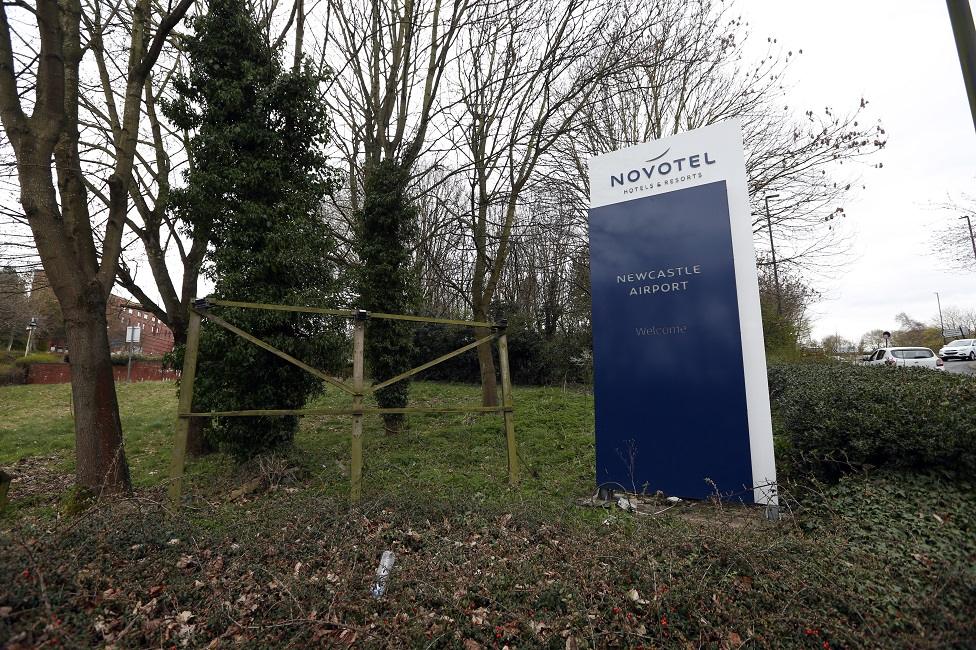
A coronavirus outbreak was reported at the Novotel Newcastle Airport in Kingston Park last April
In April 2021 dozens of coronavirus cases were reported at the Novotel Newcastle Airport in Kingston Park, with the council's findings showing concern over a "lack of basic Covid protection."
It was also reported doctors had to see patients in hotel conference rooms and the report criticised "poor communication" between Mears and local GP practices.
Meals provided to asylum seekers offered "little variation and no fresh food" and there was no communal or kitchen space.
The report also found reports of broken heating and blocked drains, and "increased community tensions" with the hotel locations becoming the target of far-right groups.
It added: "The BMA (British Medical Association) estimate that 40% of asylum seekers have experienced torture, and the hotels 'remind them of prison or being in barracks' and are therefore re-traumatising."
The report recommended improved staff training, ensuring there was fresh food and providing "proper care" by setting up clinics within the hotels.
Mears said it would take on board the council's recommendations.
A Mears spokesperson added: "Due to a significant rise in the number of people seeking asylum, and a shortage of suitable accommodation, the Home Office is using hotels in all areas across the UK.
"The safety and welfare of our service users is of the utmost importance and we have in place a team of Resident Welfare Managers who are on site at hotels daily. We are also working very closely with other partners, including health and welfare teams."
Mears added that the NHS was responsible for healthcare provision for asylum seekers.

Follow BBC North East & Cumbria on Twitter, external, Facebook, external and Instagram, external. Send your story ideas to northeastandcumbria@bbc.co.uk, external.
- Published19 August 2022
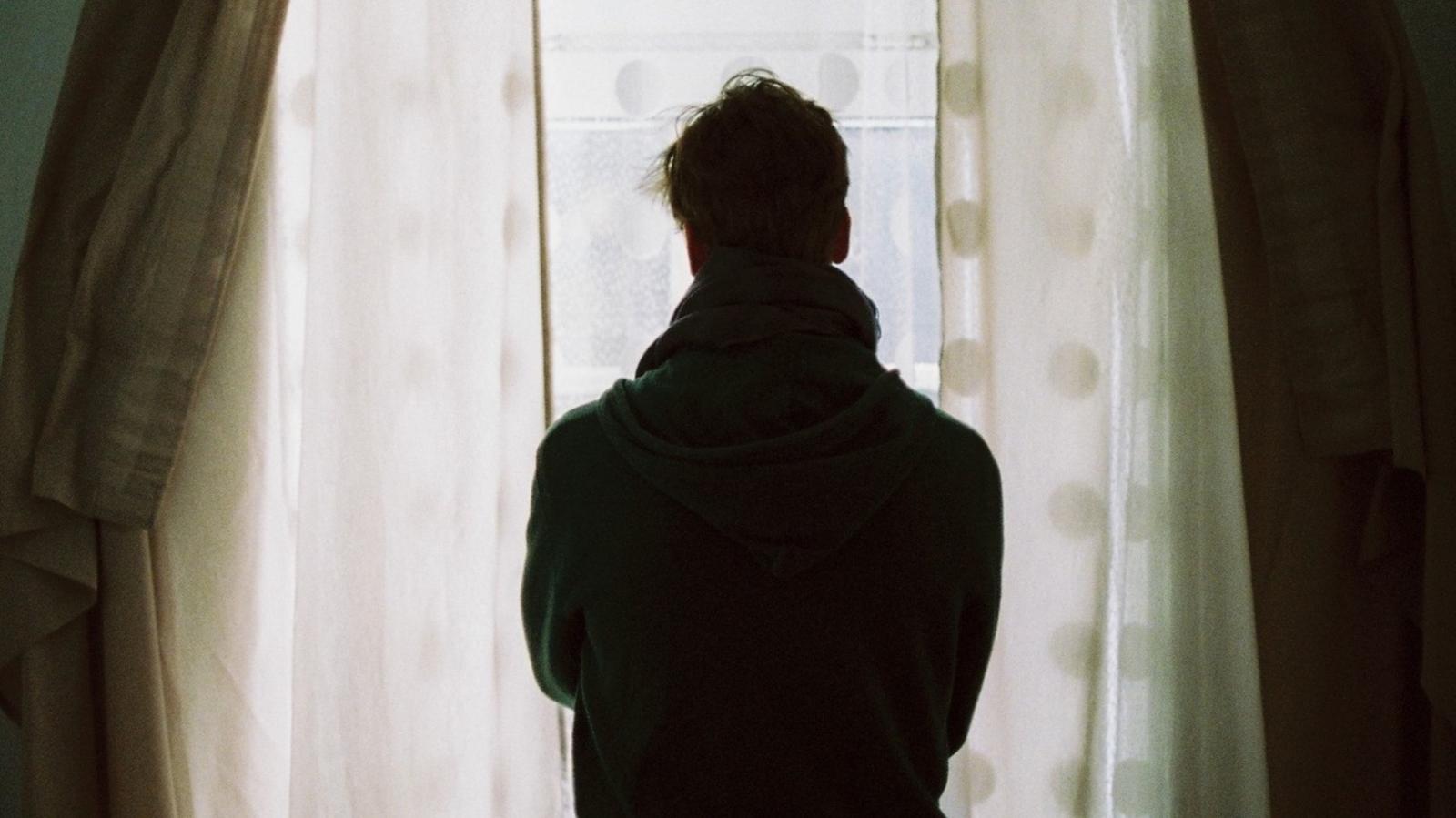
- Published5 August 2022
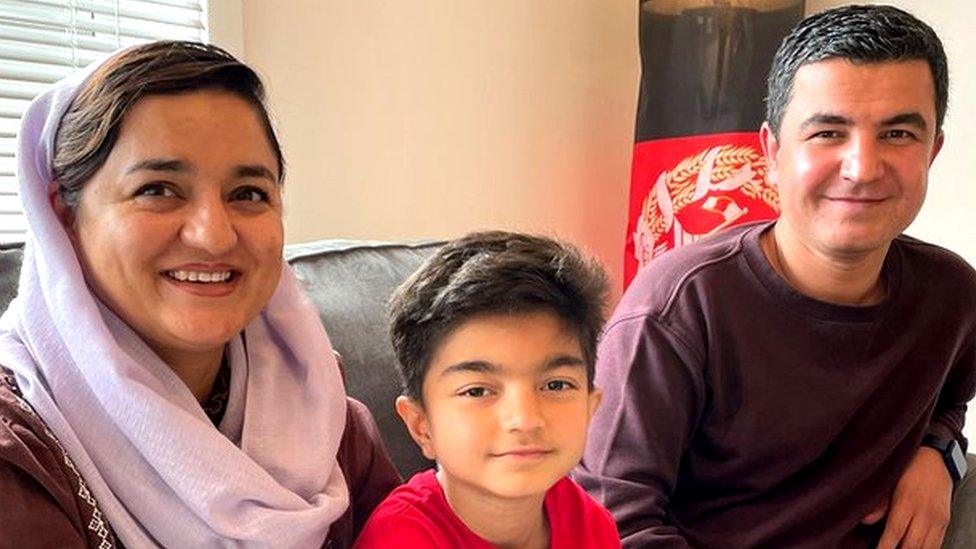
- Published26 July 2022

- Published3 February 2022
